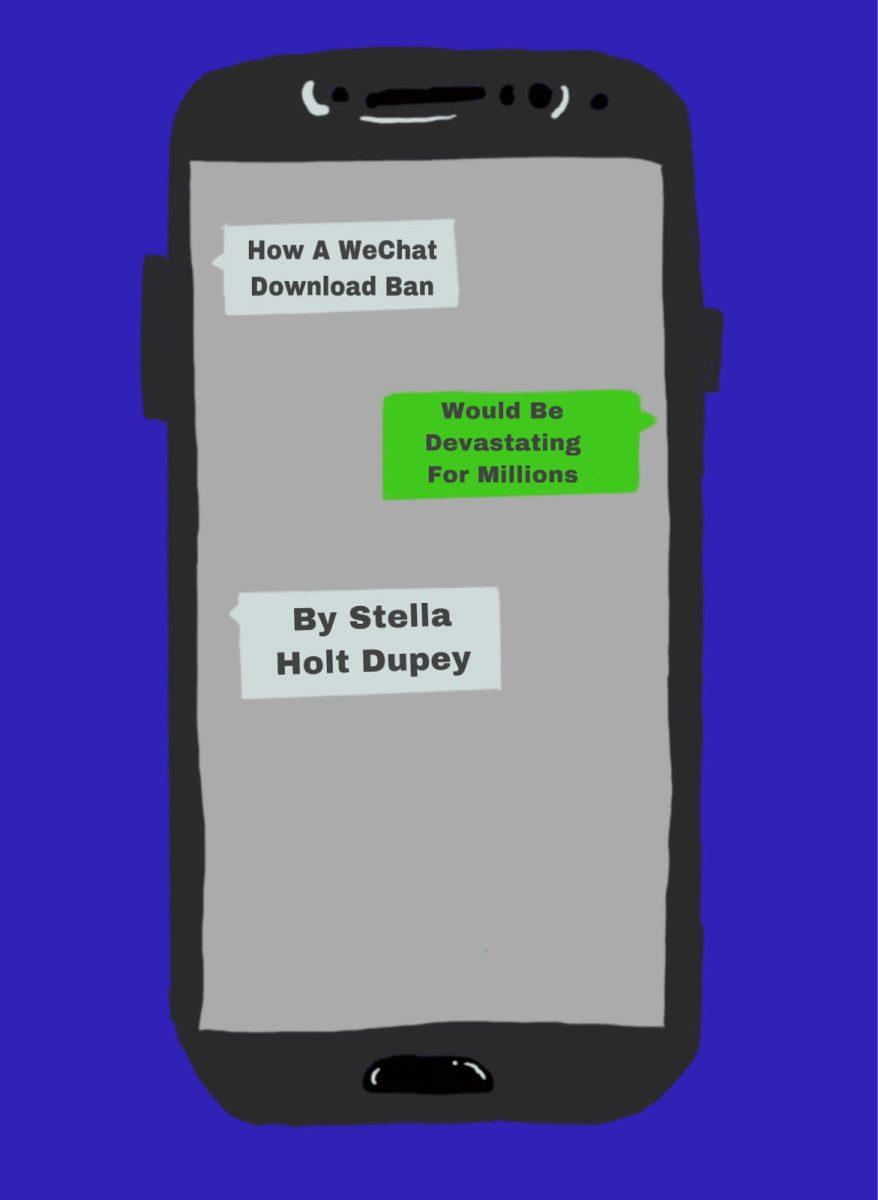WeChat is a versatile app used by millions of people around the world. Many people think of it as a messaging and social app, but the app is used for so many other things. During the pandemic, WeChat has been particularly important for communication between family and friends, as well as a contactless payment option utilized heavily in China and a way for small businesses to grow through in-app advertisements.
On August 6, 2020, President Trump signed an executive order to place a download ban on two apps owned by ByteDance, a Chinese internet technology company. American users of these two apps (TikTok, a social video production app and WeChat, a messaging and mobile payment app) would no longer be able to download these apps. In addition, existing US versions of these apps would not be able to be updated. The reason for this ban was the fear that app users’ personal info and data could be accessed by the Chinese government.
In mid-September, US Magistrate Laurel Beeler blocked this proposed ban, stating concerns that the ban was violating users’ First Amendment rights, but the Trump Administration has appealed this and will most definitely keep pushing for this ban to be implemented. The Department of Justice has been working to convince Judge Beeler that ByteDance apps have enough user data to be determined a national security threat, but so far Beeler has yet to change her stance.
What would this download ban mean? Well, to prevent the ban from affecting the app on your phone, you would have to install a VPN that would hide your location data, meaning you could still update the app. However, this could be risky, as some VPNs can damage your phone, and the most effective and safe ones cost money. So it’s likely most people won’t do this. The app will eventually fall into disarray, as apps require routine updates to keep out viruses and manage bugs, and the ban would block ByteDance from installing those updates in the American versions of the app. It’s also likely people would lose their contacts and have a hard time reconnecting with people. This ban would affect both WeChat and TikTok in these ways.
While this threat of a download ban on TikTok has been stressful for many young people who use the app as entertainment, community, and a way to escape real life, the ban on WeChat is even more of a threat. The app is used by millions of Americans, mostly Chinese Americans or people who have recently moved from China. People use this app’s many features to do everything you could imagine, from paying for groceries to organizing group donations and keeping in touch with high school friends from decades past.
WeChat has been crucial in helping these communities stay resilient during these difficult and scary times. Wanna Lei, Chinese Community Organizer at Asian Pacific American Network of Oregon and new immigrant, explains that when COVID became prominent in the US, she and many other members of the Chinese community in Oregon and Washington County created a COVID-19 security group using WeChat’s group chat function. There are over 500 people in this group, and they share resources and give each other mental support.
Lei is also in a group that started in early 2020, where they raised money to buy masks to support people in China struggling with the pandemic. Since then, they’ve also used WeChat to get people together and raise money to buy masks for the American frontline workers. This group has also been supporting local retirement homes.
Recently unemployed people have been using WeChat to promote their new small businesses selling authentic hometown food. Lei believes these small businesses who rely on WeChat to sell their food will be most impacted by the download ban. Lei also stresses the importance of WeChat for small businesses in the US. Local businesses ShunFa Supermarket and Five-Spice Restaurant both use WeChat to advertise fresh items in their stores.
Additionally, with many businesses no longer accepting cash, WeChat’s contactless payment function has been heavily utilized, in China and US cities alike. Like in China, people in the US use the app to do pretty much everything, from buying a bottle of milk to ordering their taxes.
But even before the pandemic, WeChat was an essential part of life for many people. “WeChat is more than an app. It means a lot to the Chinese community to stay in touch with friends and family, connecting family no matter where they are around the world,” says Lei.
She can read the news from China using the app, and also the magazine from her high school she attended 20 years ago. “I, myself, subscribe to my high school magazine from twenty years ago. You can subscribe from WeChat, and you can read [the magazine], and I’m really happy about that.” She also mentions how many people share food they are cooking, and their own recipes. She enjoys seeing how other people cook her hometown foods.
“WeChat is really simple; everyone can use it,” she states.
Opal Rockett (9) is a member of the Asian American Association at Franklin, and she uses WeChat frequently to communicate with her friends in China. She especially enjoys the “moments” feature, which allows her to see disappearing photo and video updates posted by her friends, a feature similar to Instagram or Snapchat stories. “It’s a really straightforward and easy way of keeping in touch. It also makes you feel more connected to people who you know in China, even though you’re so far away,” she says. She utilizes the messaging systems most often, and she takes online Mandarin lessons with a friend in China using the app. The translate feature makes it very easy to communicate with others who don’t speak the same language as you. It’s a great system for international communication, and there isn’t another good alternative.
She shares that when she visited China, people used WeChat everywhere you looked, whether they were buying bubble tea or chatting with friends. She also brings up that it’s an even more important app for communicating with people in China because it’s one of the few browsers that isn’t banned. China’s internet laws are very strict, with most international browsers being banned. She thinks it would be very hard for people in China to track down American friends without WeChat, and if the download ban is implemented and people lose their contacts, they will have a hard time finding each other again.
“[The proposed ban on WeChat] is very personal for so many people because so many people use it to keep in touch with family and friends.” She adds that for her, it is the easiest way to communicate with her international friends. When she heard of the ban, she immediately tried to get her friend’s phone numbers so they could keep in touch, but that proved to be very difficult. Rockett has already seen how hard it is to keep in touch without the aid of WeChat, and although she doesn’t need it to run a business or pay her taxes, she does appreciate the ease it brings to her life. “I think it would be really challenging [if WeChat got banned]. I’m really lucky, [WeChat] is not necessarily a necessity for me, but it’s definitely a big part of my life and I definitely want to keep it.”
If WeChat were to be banned in the US, many people would feel stranded and lose connection with relatives and friends in China. This would especially feel like a hard hit to Chinese communities in the US. This year those communities have already dealt with xenophobia, racism, and hate crimes due to the incorrect labeling of COVID-19, naming it the “The China Virus.” The President and his administration have actively implemented that stereotype, and many Chinese and other Asian people in the US have felt targeted due to that false notion.
The results of the upcoming November 3 presidential election will be very emotional for many, regardless of who wins. Either way, the ability to use an app like WeChat as a way to communicate and organize will be essential for so many people, and its significance should not be underestimated.
Illustration by Stella Holt Dupey



































